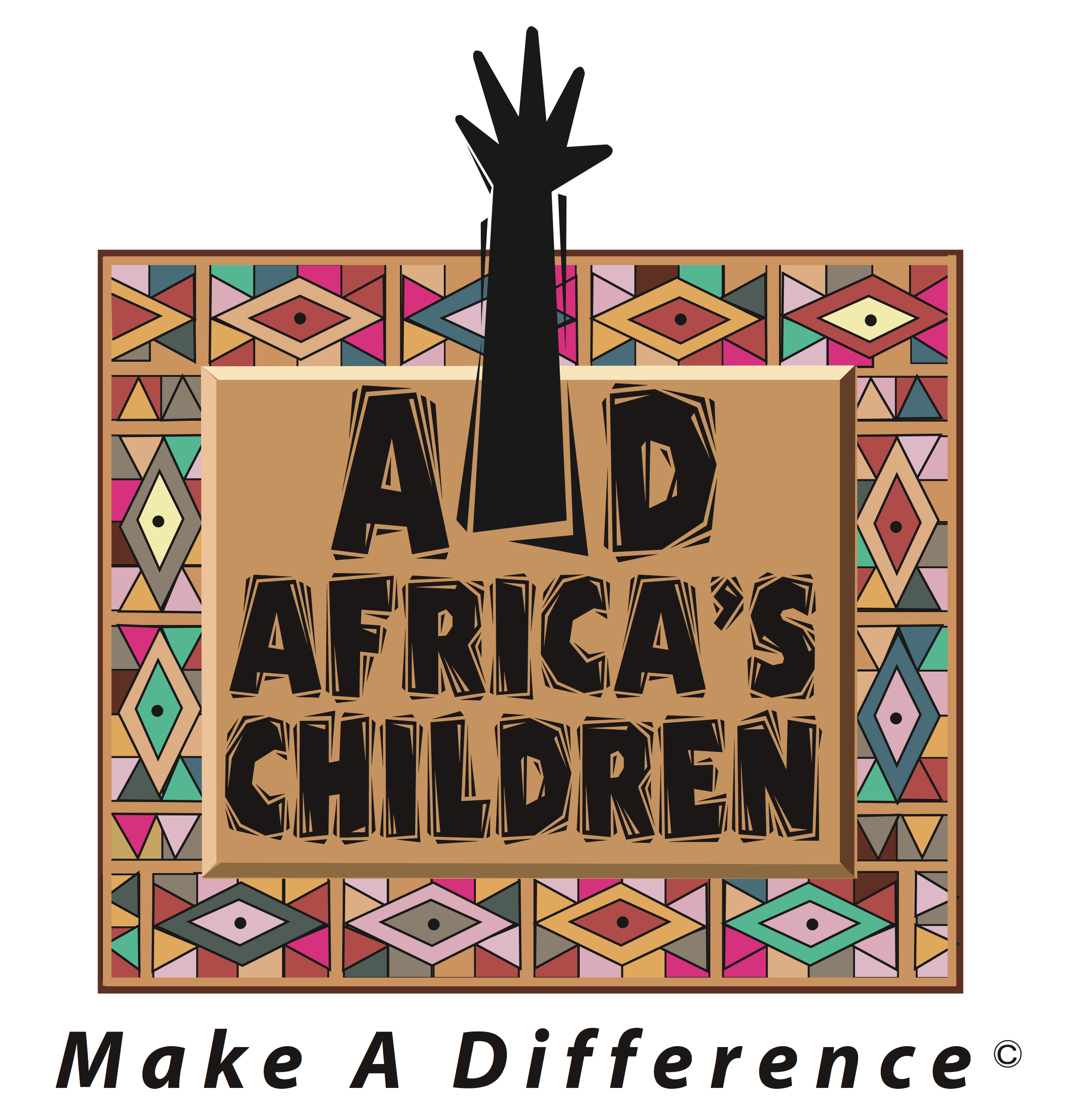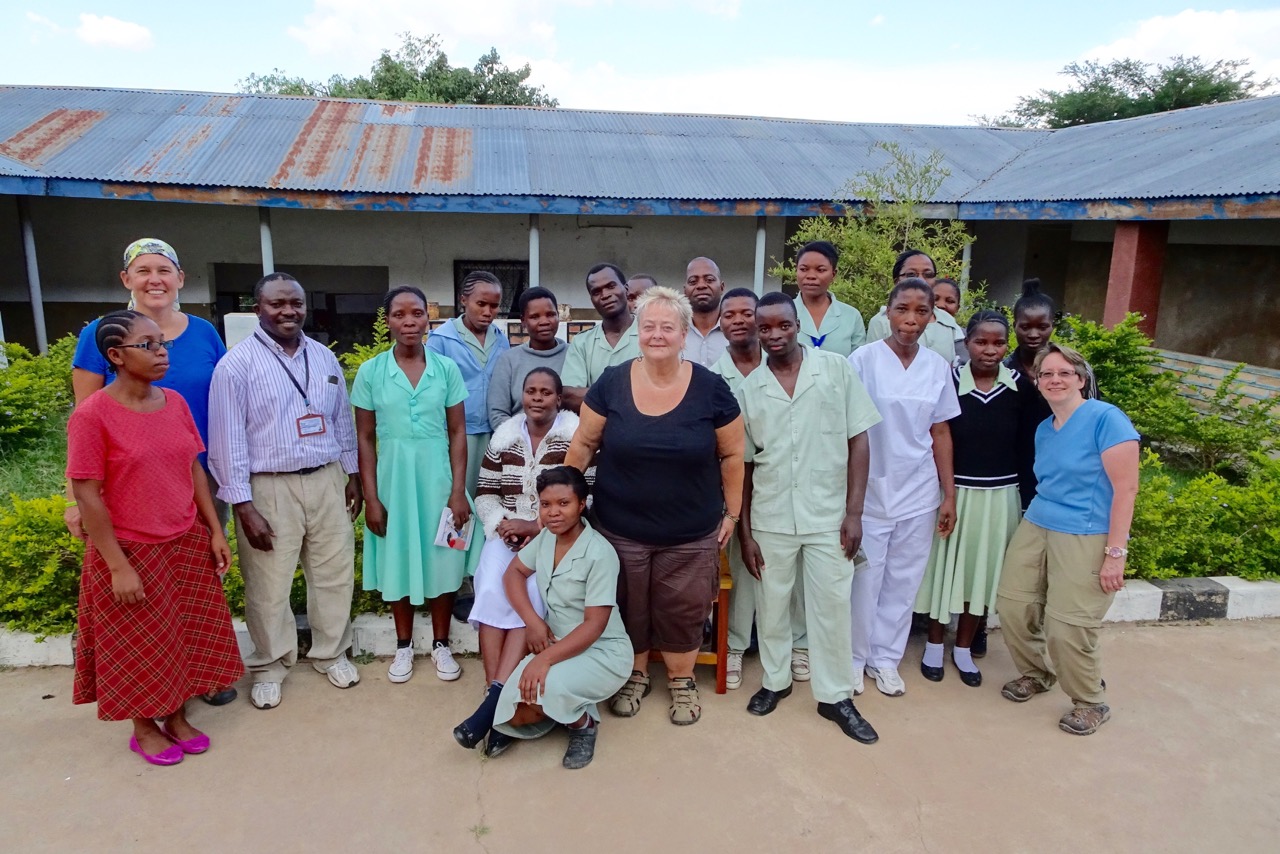Medical Mission
Kerry delivering baby.
Medical Mission Trip Interview with Aid Africa’s Children, Debbie Gilliam, President, and Rebecca Schwuchow, Vice President of Missions
1. Why does Aid Africa’s Children (AAC) do medical mission trips?
Debbie: Many of our missions are focused on healthcare because Rebecca and I are nurses. We have friends and co-workers who are also nurses and doctors. The health, vitality, and well being of many African communities are greatly impacted by their access to healthcare, disease prevention and resources for treatment. We have the knowledge and ability to procure medical resources and supplies. Most importantly, we have the hearts to truly care for people. It is why we do what we do! We believe love, respect and compassion for all patients should be universal. It is why we became nurses.
Rebecca: A medical mission trip to Africa planted the seeds to start this organization. It was important to see and understand what the needs of the people were, in order to help them. It’s important to make a physical connection and offer encouragement firsthand. I think it is good to see things with your own eyes and experience firsthand the challenges the people we serve are facing. That makes it very real and very easy to bring the message back to possible donors.
2. What has Aid Africa’s Children accomplished going on medical trips to different regions of Africa?
Debbie: It is not just about the specific projects we assist with, the donations we collect or the service we provide. It is very much about the relationships forged. People everywhere deserve and want hope, dignity and respect. These things are crucial for us to establish and nurture with those we serve in our missions. There is nothing more powerful than people understanding and feeling that we truly care for them and empathizing with the challenges the poor face on a daily basis. This is the basis for establishing trust and success in mission service.
3. What measures are involved in preparing for a medical mission trip?
Rebecca: Preparing for a trip depends on who is going with you and where you are going. We try to meet at least once a month for an hour or so, to prepare people especially people who have never traveled to Africa. We communicate with hosts to determine what their needs are, what to bring, and what they want us to do.
Preparing people is probably most important. We as Americans are pretty type A and everything in Africa is very loose, so they need to be prepared for that. People need to be prepared for the lack of electricity, maybe eating strange food. They need an understanding of the culture they are visiting and who they are trying to help.
Debbie helping newborn.
4. How do you determine who to recruit for a medical mission trip?
Rebecca: We recruit based on needs of where we are going and hosts requests.
Debbie: The keywords for success for the mission experience are preparation but also flexibility. Volunteers need to understand this is crucial to be flexible and remember we are there at their invitation and to best serve their peoples needs as long as the situation is safe, Flexibility is crucial so if you have a rigid or compulsive personality Africa is not the place for you. If you go with an open mind you will learn much more than if you go with too many pre-conceived ideas.
5. How do you determine what you are going to do on a medical mission trip?
Rebecca: Most of the time we have a general idea of what we will be doing but sometimes we wing it when we get there. In November, 2016, we took the opportunity to meet the local women on our trip to Tanzania. They wanted to start a chicken coop business to raise chickens and sell eggs. We are currently raising funds for the chicken coop to buy 100 chicks. People can buy a chick for the chicken coop for $2. The money from the business will help 30 women support their families.
We really never know what we will be doing exactly until we get there and that is what many volunteers can't deal with. We look for people who are OK with not knowing what every day will be. Sometimes cars breakdown and patients don't show up because they are tending to their crops. We can’t fix that.
Kerry and Debbie take a break from medical duties.
6. Where do you get the medications you take on medical trips?
Debbie: We reach out through networking to physicians offices, clinics, dentist’s offices that might be willing to donate from their suppliers.
Sometimes it works to purchase the meds in Africa, if possible or more likely donate funds towards the purchase of meds to treat the diseases indigenous to the area.
Rebecca: Meds are typically purchased. We bought antibiotics through Debbie's work. Debbie and I will often purchase medications with our own money. We have also gotten meds from Johnson and Johnson and a MAP program but these were not donated, they were purchased. You can't specify what meds you want, they just send you a box of meds, so we opted not to do that this time.
7. How do you determine what kind of medications you obtain and take on a medical mission?
Rebecca: Medications are based on needs of the area and we discuss this with whatever doctor is traveling with us. In the past, Dr. Shackleford and Dr. Gerlach researched the region for common diseases and tell us what meds they would like us to bring.
Rebecca monitoring baby with malaria.
8. How long do these tasks take?
Rebecca: Again usually one year is a good starting point. We look to get donations of medical equipment: BP cuffs, stethoscopes, dressing supplies, syringes, etc so we put the word out and people start donating.
9. How do you get the best airfares?
Rebecca: I just look on the internet for airfares. We pay for our own travel so I just watch for the best deal.
10. How do you bring the medical supplies you need to conduct a medical mission trip?
Rebecca: We each take two checked bags loaded with all of the medical supplies we will be using. We put all our personal clothing in the carry on bags and wash out clothes when we get wherever we are staying.
11. Since you have been doing medical mission trips with AAC, what have you learned over the years that has changed your approach to doing medical mission trips?
Rebecca: Taking a smaller group of dedicated realistic volunteers is best, quality not quantity. Not everyone who tells you they want to come with you is a good fit to go. It is stressful and difficult sometimes to get along with everyone in a stressful situation in tight quarters. I try and set expectations very low, tell potential volunteers we won't have electricity and running water. Then when we do, it is a bonus.
Debbie: The most successful mission trips are with volunteers who have not only specific talents, but what I call volunteers with a "servant's heart.” All volunteers need to examine their motives for going on the mission trip and realize you are there to serve with a caring and nonjudgemental attitude. You are in their country and their culture. Their may be challenges and difficulties but the blessings and rewards you get from mission service far outweigh these. You need an open mind and open eyes to see them! We also have learned, as a team, troubleshooting and sharing ideas is essential.
Rebecca, Debbie, and Dr. Gerlach with Mvimwa Holy Spirit Abby's Medical Staff.
12. What are some of the challenges you have had to overcome on medical mission trips?
Rebecca: Travel in a foreign country is always a challenge. Transportation is probably the biggest challenge..One year we missed our plane connection in DC and had to wait for 24 hours until we got a connection. Almost every trip we have had cars break down, usually more than once. Sometimes we had people get sick either dehydrated or nauseated, etc. We have had volunteers get in tiffs with each other. Sometimes volunteers act somewhat inappropriate and then you need to apologize to the hosts. Making sure everyone has clean drinking water is always a challenge. Just getting the luggage where it needs to go is challenging. With Debbie, Diane (our Treasurer) and myself, we had 6 large suitcases, 3 of us, and our carry-on luggage, which meant we needed a pretty big vehicle. Our suitcases didn't arrive until we had been at the Abbey for several days so we had to wait.
13. Do the medical mission trips actually become more productive over the years because of the experience you gain?
Rebecca: I think the trips have changed. We don't try and take everyone who has an interest. We try and better prepare volunteers. We don't assume we know what the hosts needs are. We have learned to ask first, and try to bring exactly what they ask for. I also believe the more you learn about the culture the better you can serve, so that has improved over the years. We also are very acutely aware of the language barriers even with people who speak English. Often what is being communicated is not what is received, that is very important to keep in mind.
Debbie: With each experience you gain knowledge of what works better in each culture and become more cognizant of barriers to success and what solutions might work better.
Debbie and child at Tarime Dispensary.
14. How have you changed since doing the medical mission trips with
Aid Africa’s Children?
Rebecca: I grew up very poor, so being around people who are poor is nothing new for me but seeing such desperation is. It is difficult to be at the site where people have walked several miles to collect dirty water for drinking and not be changed. For some unknown reason I was born in the US, I don't know why or how I won that lottery but it is not lost on me. The people we serve are our brothers and sisters and our children. They are no different then us. We are separated only by circumstance. I believe it has deepened my conviction to pass the blessings on that I have received, that is how it has changed me.
Debbie: My life and my faith did not truly take a turn toward really meaningful significance until I became involved in mission work. I realized how very blessed I am and the importance of passing along that blessing. My work in Africa has made me a witness to the struggles for survival in the face of poverty, lack of food, clean water and healthcare. Whether it is working with hospice nurses in rural Mamelodi, South Africa, caring for children with malaria in Tanzania, or teaching HIV/AIDS education to students at Sjambok School in South Africa, I feel I receive so much more than I really give. Sharing the stories of the people I have met has touched me to the core. I am privileged to share a bond with so many people in Africa through my work. Love and blessings are so much more meaningful if they are shared!







